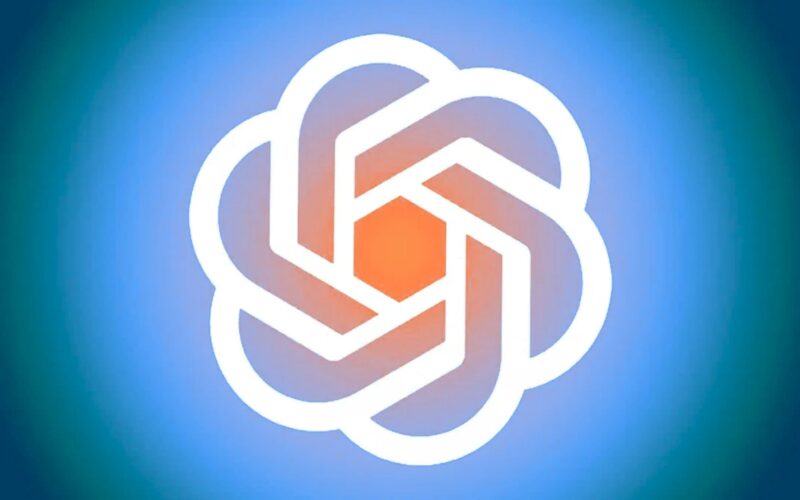Mobile apps are increasingly targeted by hackers, with security breaches becoming a top concern for businesses and users alike. In fact,92% of mobile apps have been found to use insecure cryptographic methods, exposing them to significant data risks.
With growing concerns about privacy and data protection, developers are seeking powerful solutions that go beyond app security. By incorporating blockchain into Android apps, businesses can enhance security, transparency, and decentralisation.
In this blog, we’ll explore how developers can effectively use blockchain in Android app development, the tools and frameworks that make it possible, and the real-world benefits of this integration.
Key Takeaways
- Blockchain integration in Android apps boosts security, transparency, and efficiency across industries.
- Developers face challenges like storage limits, network latency, and complex integration with existing systems.
- Key blockchain applications include cryptocurrency wallets, DeFi apps, supply chain tracking, and healthcare solutions.
- Overcoming integration challenges requires expertise in both blockchain and Android development for optimal results.
What is Blockchain and How Does It Fit with Android Development?
Blockchainis a decentralised digital ledger that records transactions across a distributed network. It eliminates the need for a central authority, making it more resilient to attacks and tampering. At its core, blockchain is powered by three fundamental principles:
- Decentralisation: Data isn’t controlled by a single entity; instead, it’s distributed across a network. This reduces the risks associated with data breaches and single points of failure.
- Immutability: Once data is added to the blockchain, it cannot be changed or deleted. This ensures that the information remains trustworthy and accurate over time.
- Cryptography: Blockchain uses advanced encryption techniques to safeguard data and ensure that only authorised users can access or modify it, securing sensitive transactions.
For Android developers, integrating blockchain into mobile apps provides a range of valuable benefits, particularly in areas where security, transparency, and privacy are top priorities. Here’s how these blockchain principles enhance Android app development:
1. Secure Transactions
Blockchain’s decentralised architecture ensures that transactions are validated in real time across the network.
This is particularly beneficial for apps that handle payments or cryptocurrencies,providing a secure, tamper-proof way to conduct financial transactions without relying on a central authority.
2. Data Integrity
Blockchain’s immutability ensures that once data is entered into the system, it cannot be changed. This is vital for applications that require accurate, unaltered data, such as healthcare apps, where patient records or medical histories must be maintained with complete integrity.
3. Transparency and Trust
The transparency of blockchain allows users to track and verify transactions, which is essential for applications where trust is a critical factor.
For example, supply chain tracking apps can use blockchain to provide end-to-end visibility, allowing users to trace products back to their origins with full confidence.
4. Enhanced Privacy
Blockchain empowers users to control their data through decentralised identity management systems and smart contracts.
This gives users the ability to share only the data they want, ensuring privacy while interacting with services, which is increasingly important for mobile apps handling sensitive personal information.
Also Read: Step by Step Guide to Mobile App Development for Businesses
How Can Blockchain Enhance the Security of Android Apps in 2026?
As Android apps increasingly store sensitive user data, adopting stronger security practices becomes mandatory.
Integrating blockchain can fundamentally change how you think about secure mobile development by introducing encryption, immutability, and decentralised identity.
Here’s what blockchain brings to Android app security and how it protects your users and your brand:
1. Enhanced Encryption
Blockchain uses cryptographic techniques that go beyond basic TLS or REST‑API security for mobile apps. Every transaction or data change is hashed and chained, making tampering or spoofing significantly harder.
For example, one study found that 88 % of analysed Java‑based Android apps misused cryptographic APIs—exposing them to high-severity risks like hard‑coded credentials or MITM attacks.
By applying blockchain’s encryption model, your app ensures that only authorised entities can access sensitive data and that each record remains traceable.
2. Tamper‑Proof Data Records
With blockchain, once a record is committed, it cannot be altered without detection. This matters in scenarios such as transaction logging, healthcare records, and audit trails.
According to research, the average value of data on amobile device is around US $14,000, underscoring the importance of protecting data integrity.
Incorporating blockchain into Android apps means you provide a provable record of data origin and integrity—helping prevent internal tampering and external compromise.
3. Stronger Authentication & Identity Management
Blockchain enables decentralised identity models and token‑based authentication. Rather than relying solely on a central server or vulnerable session tokens, you can store identity attributes on‑chain and let the device verify credentials locally.
A recent report noted that fraud‑prevention via blockchain‑enabled KYC systems reduced compliance and onboarding costs by up to 50%.
For Android apps that manage personal data, handle payments, or follow regulated workflows, this translates into fewer points of failure and greater user trust.
4. Risk Mitigation for Key Mobile Threats
Typical risks in Android apps include insecure local storage, weak encryption, unauthorised data access, and failures in centralised authentication. By using blockchain, you mitigate several of these threats:
- No single point of failure due to decentralised ledger structure
- Clear audit trail of data changes (reduces internal fraud risk)
- Encryption and hashing built into transaction logs.
Blockchain can enhance your business’s security, transparency, and efficiency. But how do you apply it effectively to meet your unique needs? At Codewave, we design custom blockchain solutions that integrate seamlessly into your operations, ensuring they scale and adapt to your future goals.
Contact us today to see how blockchain can drive your business forward.
What Are the Best Tools and Frameworks for Running Blockchain on Android in 2026?
Integrating blockchain into Android apps requires the right tools and frameworks to ensure efficiency and scalability. With several platforms and libraries available, choosing the right one for your specific app needs is key to delivering a secure, seamless experience.
Here’s an overview of the top blockchain frameworks and SDKs, and how they can streamline your development process in 2026.
1. Popular Blockchain Frameworks for Android
These frameworks offer different features that suit specific types of Android apps, from decentralised apps (dApps) to enterprise solutions:
- Ethereum: Ethereum is widely used for decentralised applications (dApps) and smart contracts. It enables secure, automated transactions, ideal for DeFi apps, tokenisation, and more.
Best For: Apps that need smart contracts or handle tokens.
- Hyperledger: A permissioned blockchain framework focused on privacy and scalability, ideal for enterprise applications. It is used in supply chain, banking, and logistics.
Best For: Enterprise apps that require data privacy and operate in regulated environments.
- Corda: Corda is tailored for regulated industries like finance, insurance, and healthcare. It allows private transactions, ensuring compliance with industry standards.
Best For: Financial and healthcare apps requiring privacy and compliance.
2. Blockchain SDKs and Libraries for Android
To simplify integrating blockchain into your Android app, developers can use specialised SDKs and libraries. These tools abstract away the complexities of blockchain development, allowing you to focus on building app features.
Web3j
Web3j is a popular Java library that enables Android apps to interact with the Ethereum blockchain. It facilitates the creation, management, and interaction with smart contracts directly from the app.
Blockchain SDKs (Truffle Suite, BlockCypher)
Blockchain SDKs like Truffle Suite and BlockCypher offer complete platforms for building decentralised applications (dApps).
These SDKs include testing environments, APIs, and libraries for blockchain interaction, enabling faster, easier development of smart contracts and dApps.
BitcoinJ
BitcoinJ is a Java library that allows Android apps to connect with the Bitcoin network. It’s used to build Bitcoin wallets, process transactions, and manage Bitcoin addresses.
BitcoinJ is lightweight and efficient, making it perfect for mobile apps focusing on cryptocurrency payments or wallet management.
Choosing the Right Blockchain Tool for Your Android App
The blockchain framework or tool you choose will depend on your app’s specific requirements and functionality.
Here’s a breakdown of which tools work best for different types of apps:
For Smart Contract-Based Apps: Use Ethereum with Web3j to build decentralised finance apps, tokenised applications, and more, thanks to its support for smart contracts and complex transactions.
For Enterprise Applications: For apps that require scalability, privacy, and security, Hyperledger or Corda is ideal. These permissioned blockchains are ideal for regulated industries such as finance, healthcare, and supply chain management.
For Cryptocurrency or Wallet Apps: BitcoinJ is a lightweight option for apps focused on Bitcoin transactions and wallet management. For Ethereum-based apps or those that need wallet functionality, Web3j is the preferred choice.
Also Read: Blockchain Decentralised Marketplace Development
Integrating blockchain into Android apps comes with its share of challenges. Let’s explore the key hurdles developers face and how to address them.
What Challenges Should Developers Expect When Integrating Blockchain into Android Apps?
Integrating blockchain into Android apps isn’t straightforward—it presents several unique technical challenges that developers need to address. These challenges can impact both the functionality and performance of the app, making it crucial to understand how blockchain interacts with mobile devices.
Here’s a closer look at the hurdles developers can expect when integrating blockchain into Android apps:
| Challenge | Description | Solution |
| Storage Limitations | Blockchain data can quickly consume limited mobile storage. | Use lightweight nodes or clients that store only relevant data to optimise storage usage. |
| Network Latency | High latency in blockchain transactions can affect app performance. | Optimise network requests and use faster blockchain protocols to reduce latency. |
| Complex Programming | Blockchain integration requires expertise in both blockchain tech and Android development. | Use libraries like Web3j and pre-built SDKs to simplify integration and reduce complexity. |
| Performance Impact | Blockchain operations can be resource-intensive, affecting device performance and battery life. | Offload heavy operations to cloud nodes or implement Layer 2 scaling solutions to improve app performance. |
| Security Risks | Integration can expose vulnerabilities like insecure key storage or faulty contract code. | Secure private keys with Android Keystore and conduct regular code audits to ensure robust security. |
Now, let’s look at how blockchain is already being used in Android apps today, and where it’s headed in the future.
Real-World Applications: How Blockchain Can Transform Android Apps in 2026
Blockchain technology is already making waves across various industries, and in 2026, its impact on Android apps will only continue to grow. From cryptocurrency wallets to decentralised finance (DeFi) and healthcare, blockchain is transforming how we think about data security, transparency, and user interaction.
Here’s a look at real-world applications and emerging use cases of blockchain on Android platforms:
1. Cryptocurrency Wallets and Payments
Blockchain enables secure, peer-to-peer cryptocurrency transactions.Cryptocurrency wallets use blockchain for transparent, tamper-proof transactions
As of 2024, there were over560 million cryptocurrency users globally, highlighting blockchain’s role as a secure platform for digital payments.
2. Decentralised Finance (DeFi) Apps
DeFi apps offer financial services without intermediaries, powered by blockchain and smart contracts. The DeFi market was valued at $14.35 billion in 2023, showing significant growth in blockchain-driven financial solutions.
3. Supply Chain Management
Blockchain ensures transparent and secure tracking of products from origin to delivery. Apps provide end-to-end visibility, reducing fraud and improving efficiency in supply chain management.
4. Healthcare Apps
Blockchain offers secure, immutable patient records, enhancing data privacy and transparency. Healthcare apps empower patients to control their health data, improving privacy and reducing the risk of data breaches.
5. NFTs and Digital Collectables
Blockchain secures ownership of digital assets like NFTs. Platforms allow users to buy, sell, and create NFTs. TheNFT market reached $24.9 billion in 2021, demonstrating blockchain’s ability to reshape digital ownership.
Why Choose Codewave for Blockchain Development?
At Codewave, we specialise in crafting blockchain solutions that drive innovation, security, and efficiency. With a proven track record in building scalable, robust blockchain applications, we focus on providing businesses with tailored solutions that integrate seamlessly with their existing systems and future goals.
Our Core Blockchain Capabilities:
- Proof of Concepts (PoCs): We specialise in building PoCs and rapid prototypes for early validation, helping you test and refine your ideas before full-scale implementation.
- Frameworks: We build on robust frameworks like Multichain and Ethereum to create secure, decentralised applications (DApps) and blockchain solutions that are reliable and future-proof.
- Smart Contracts: Our team brings extensive expertise in smart contract development, utilising platforms like Solidity and Vyper to automate processes, reduce costs, and ensure accuracy without intermediaries.
- Hyperledger: We have a strong focus on Hyperledger development, building permissioned blockchain networks that offer security, privacy, and scalability for enterprises.
- Wallets & Exchange Applications: We design and develop cryptocurrency wallets and exchange applications, ensuring secure, user-friendly platforms for managing digital assets and transactions.
Explore our portfolio to see how we’ve helped businesses across industries transform with blockchain.
Conclusion
Integrating blockchain into Android apps in 2026 offers key benefits, including enhanced security, efficiency, and transparency. Blockchain is transforming how industries handle transactions, data, and user interactions.
However, successful integration requires overcoming challenges such as storage limitations, network delays, and ensuring smooth mobile performance.
At Codewave, we focus on solving these challenges. We develop tailored blockchain solutions that integrate seamlessly into your Android apps, ensuring scalability and security.
Ready to integrate blockchain into your Android app?Contact Codewaveto create a solution that drives efficiency and security.
FAQs
Q: How does blockchain improve user privacy in Android apps?
A: Blockchain enhances user privacy by allowing decentralised control over personal data.
Users maintain control over their information through encrypted transactions and can choose what data to share, reducing reliance on centralised databases.
Q: Can blockchain help reduce transaction fees in Android apps?
A: Yes, blockchain can reduce transaction fees by eliminating intermediaries. With blockchain-powered payments, transactions are processed directly between parties, cutting out fees typically associated with traditional payment systems like banks or credit card networks.
Q: How can blockchain improve data integrity in Android apps?
A: Blockchain ensures data integrity by creating immutable records. Once data is added to the blockchain, it cannot be altered, providing a verifiable and tamper-proof audit trail, which is crucial for industries requiring accurate records like healthcare or finance.
Q: What are the scalability concerns when integrating blockchain into Android apps?
A: Scalability is a challenge as blockchain networks can become slower and more expensive as they grow.
To address this, developers can implement Layer 2 scaling solutions, such as sidechains or state channels, which process transactions off-chain to reduce the load on the main network.
Q: How does blockchain integration affect app development time?
A: Blockchain integration can initially slow down app development due to the complexity of the technology and the need for specialised expertise.
However, once integrated, it provides long-term benefits like enhanced security, automation, and decentralised functionality, which can speed up future updates and enhancements.
Codewave is a UX first design thinking & digital transformation services company, designing & engineering innovative mobile apps, cloud, & edge solutions.







